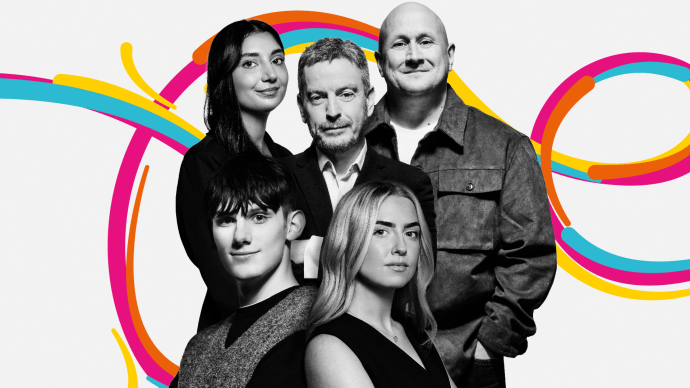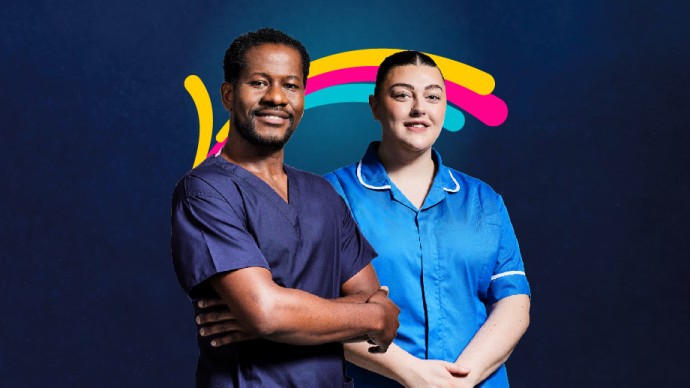A bright new future for children
Saul Becker image

Standfirst
For many, thoughts of childhood are marked by memories of playing with friends, school days and a safe, carefree home.
But for millions of children in the UK and around the world, their reality is far from idyllic, riven with challenges and dangers that are often hidden away.
Main story
There are children who are carers looking after family, placing immense burden on their young shoulders.
Some may witness or be the victim of abuse in their homes, while other children may have their access to education restricted purely by where they happen to live.
To tackle this, Manchester Met has brought together expertise and insight from right across the university alongside partners across multiple sectors regionally, nationally and internationally in its new Institute for Children’s Futures (ICF), which launches on Wednesday 20 November.
The ICF is harnessing these powers to develop a centre for academics, practitioners and policy makers to work together across multiple themes, in identifying and driving improved experiences and outcomes for children and young people.
The ICF will bring children’s everyday experiences to the forefront of research, to amplify their voices and to make a positive difference to their lives and futures.
It is unique in its ability to create a critical mass of researchers — more than 100 at Manchester Met — joining up with policymakers and practitioners, and covering all aspects of the day-to-day lives of children growing up.
Professor Saul Becker, the ICF’s Founding Director and Pro-Vice-Chancellor at Manchester Met, said: “Our strengths at Manchester Met are set in our critical mass, the breadth and depth of our expertise, our place in the city-region, and our innovative approaches to child participation in our work.
“The ICF is harnessing these powers to develop a centre for academics, practitioners and policy makers to work together across multiple themes, in identifying and driving improved experiences and outcomes for children and young people.”
Indeed, it was Prof Becker’s own experiences as young carer that set him on path of a 30-year career in research with global impact to support young carers, working with partners such as the Carers Trust.
It is a critical, but often overlooked area. Today in the UK, there are one million children who are unpaid carers. Some of these carers can be as young as five years old, sometimes providing care up to 50 hours a week.
Prof Becker brought the ICF vision of tackling inequalities for children and young people with him to Manchester Met in 2023.
This vision has now been brought to life with the appointment of Co-Directors, Dr Haridhan Goswami and Professor Michelle McManus.
It is research with impact. Developing solutions, and working with partners, to make a real difference.
Someone who has experience of this policy-forming approach is Prof Michelle McManus whose own research has been called upon by parliament.
Our work is already making a difference. It is exciting to consider the power this critical mass of experts and networks within the ICF and what it will achieve for children going forwards.
“Working closely with our external partners has allowed us to directly create and inform policy and practice change in improving the lives of children globally,” she said.
“Our work is already making a difference. It is exciting to consider the power this critical mass of experts and networks within the ICF and what it will achieve for children going forwards.”
Examples of the impact of Manchester Met’s work in this field include: the creation of global risk assessment tools that have prevented thousands of children from being sexually abused; transformation of early years education and care provision for 0 to 3-year-olds; informing how we can reduce disparities within the UK education system; and world leading influence on raising awareness and developing service provision for children who are carers.
ICF researchers have also developed frameworks for assessing multi-agency children’s safeguarding arrangements; provided key evidence in breaking cycles of mental-health risks across generations within families; and established policy evidence informing the commissioning of tailored support for girls and young females at risk of exploitation – to name just a few.
One key regional partner is Manchester City Council (MCC), which has ambitions to be a UNICEF UK Child Friendly City, to place children’s rights and young people at the heart of decisions.
Paul Marshall, Deputy Chief Executive at MCC, said: “The ICF is a wonderful opportunity for the city to lead, guide and inform evidenced-based policy and practice.
“To have an institute of this kind that brings together the world’s best researchers, policy makers and practitioners is an exciting proposition for Manchester and the region. I look forward to exploring the opportunities the Institute will bring to have a profound and positive impact on children’s lives.”
Saeed Atcha MBE DL, CEO, Youth Leads UK and Deputy Lieutenant of Greater Manchester, added: “As CEO of Youth Leads UK, I’ve seen the power of collaboration in shaping better futures for young people.
“The ICF brings that collaboration to new heights, ensuring research translates into real change on the ground. As a care experienced person myself, I know first-hand the need for policies which reflect the real challenges young people face.”
So, while it might be a long road, as Prof Becker says, ‘working together, we can and will make that difference.’
Giving young carers a voice
Discover the research Professor Saul Becker, Founding Director of the Institute for Children's Futures, is doing to help young carers and improve law and legislation.More stories
Discover more
-
![Headshot of Hannah Smithson]()
Breaking down barriers: making the justice system fairer
Find out more -
![Chris and Sara stood smiling with four of their colleagues]()
Voices that count: supporting people with learning disabilities
Find out more -
![Professor Khatidja Chantler and Professor Michelle McManus facing the camera with their arms crossed.]()
Informing domestic abuse policy
Find out more -
![Robert and Oliver wearing lab coats in a laboratory with containers on the table in front of them.]()
Cutting harm from drugs
Find out more -
![Rob Drummond speaking behind a microphone in a radio studio.]()
Accent pride and prejudice
Find out more -
![Dr Krystal Wilkinson sat on a panel with three other women]()
Improving the wellbeing of women in the workplace
Find out more
About 200 years
Manchester Met celebrates two centuries of driving progress through excellent education and research.
-
![Siemens Chief Executive Carl Ennis posing with the firms degree apprentices]()
Driving economic growth
Find out more -
![Two nurses standing together and smiling]()
Transforming health
Find out more -
![A digital image of the university's arts buildings]()
Championing creative excellence
Find out more -
![Amer Gaffar and Liz Price stood smiling at the camera]()
Leading sustainability
Find out more










